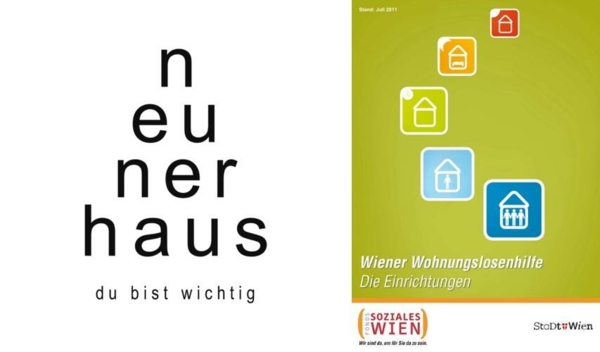Highlighting the importance of peer work in homeless assistance.
Background
In a year-and-a-half-long accompanying research, an investigation was conducted to determine the extent to which the involvement of peer employees (individuals who have personally experienced homelessness) could be beneficial for the work of Viennese Homeless Aid (WWH). This included describing the current situation of peer employees and identifying perspectives for them. The core focus of the project was on how peer work should and can be further developed. Based on the findings, recommendations were formulated to strengthen and expand the role of peer employees in Viennese Homeless Aid.
Project Content and Objectives
Peer work, involving the assistance of former homeless individuals, can enrich homeless aid and open up new perspectives. However, it can also cause irritation or even face rejection, for example, because established processes are questioned and/or potential weaknesses are exposed. Highlighting the benefits of peer work to address reservations and negative attitudes is a challenge, but one that can be overcome from within the stakeholders themselves.
Inclusion – enabling participation in societal and social processes for every individual – was central to this project. Special attention was given to the exploration of "otherness" (the "otherness" of peers in this specific case) and to reframing how it is seen by making its benefits clearly visible. The following research questions emerged:
- How does peer work in homeless aid look like at the beginning of the project, and how is it described and assessed?
- What questions/problems/challenges arise in collaboration with peer employees? Where do tensions arise, and what hurdles need to be overcome? Are the advantages of peer work recognized and considered beneficial?
- What is needed for the successful inclusion of peer employees?
Methodology
Existing documents from various phases of the "Peers in Homeless Aid" project served as source material. Interviews were conducted with various stakeholders, and peer employees were encouraged to document their impressions and experiences in "experience diaries" as part of collaborative action research. The analysis was carried out using structured text analysis; a method that is specifically suited for handling large datasets. Additionally, the method of documentary interpretation was applied (discussion of preliminary results at meetings where further data collection steps were discussed). In a future workshop, results of the research were subjected to a "communicative validation" with peers, Vienna Homeless Aid staff, and employees of similar social institutions (e.g., those serving people with mental health issues or those caring for refugees). Concrete recommendations supporting the inclusion of peer employees in homeless aid were derived from this.
Result
Key points for strengthening the inclusion of peers are:
- Measures at the level of individual Vienna Homeless Aid facilities: This involves profound support for peers, recognition of their work and the experiential knowledge they bring to the organization. Putting the peers' contributions into the spotlight not only makes their valuable work visible but also helps to identify areas for improvement.
- Measures at the level of peers: These revolve around the continuation of proven training programs, initiatives for peer self-organization, offerings for professional development, the promotion of peer diversity, and protection against discrimination.
- Measures at the level of homeless aid: Roles and professional images for peers and "conventional" employees need to be clarified. Relevant training programs should be offered and a culture of mutual learning and exchange (even beyond national borders and the field of homeless aid) is be fostered.
- Measures at the level of users: Promoting inclusion in all areas and projects of homeless aid is a must, improving the relationship between organizations and its target group, too. Integrating peers into the job market sets an example for organizations struggling with similar problems as homeless aid.
You want to know more? Feel free to ask!
Department of Social Sciences
- Neunerhaus


